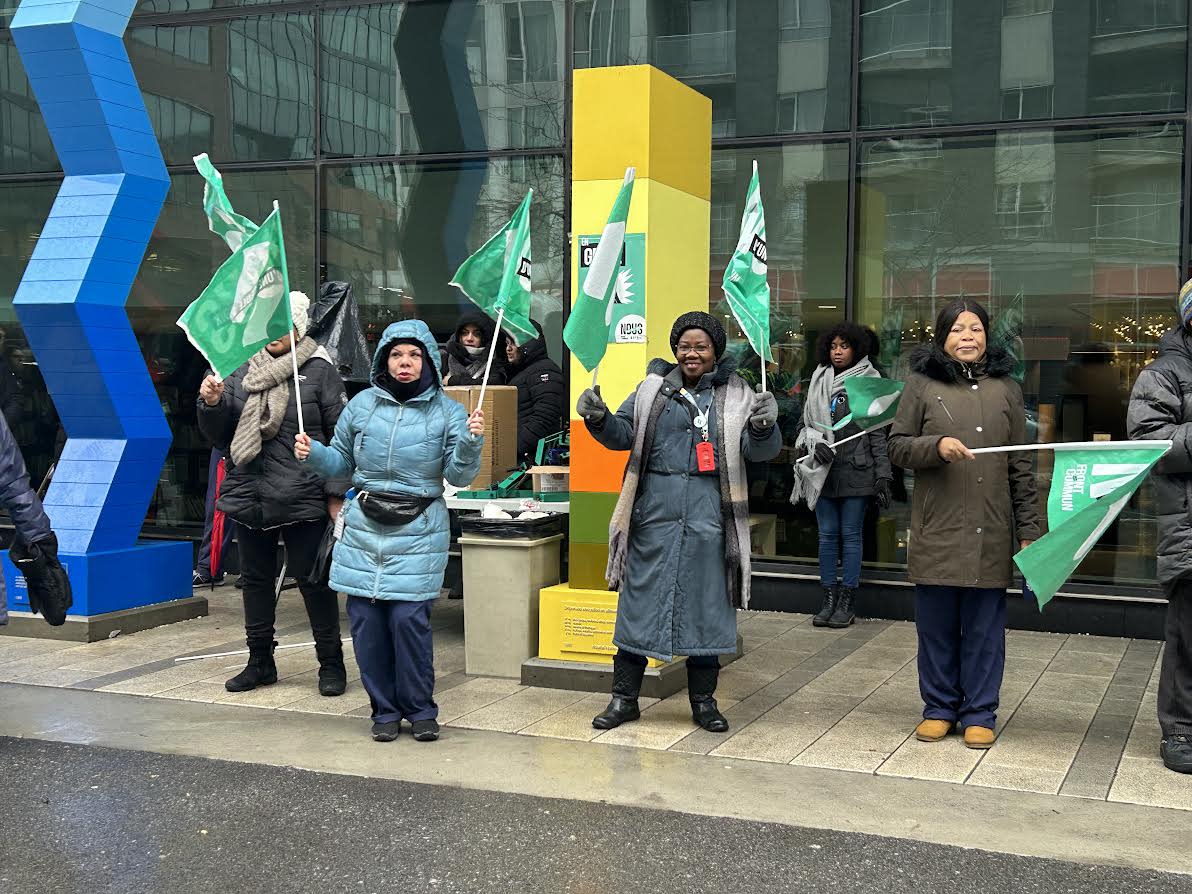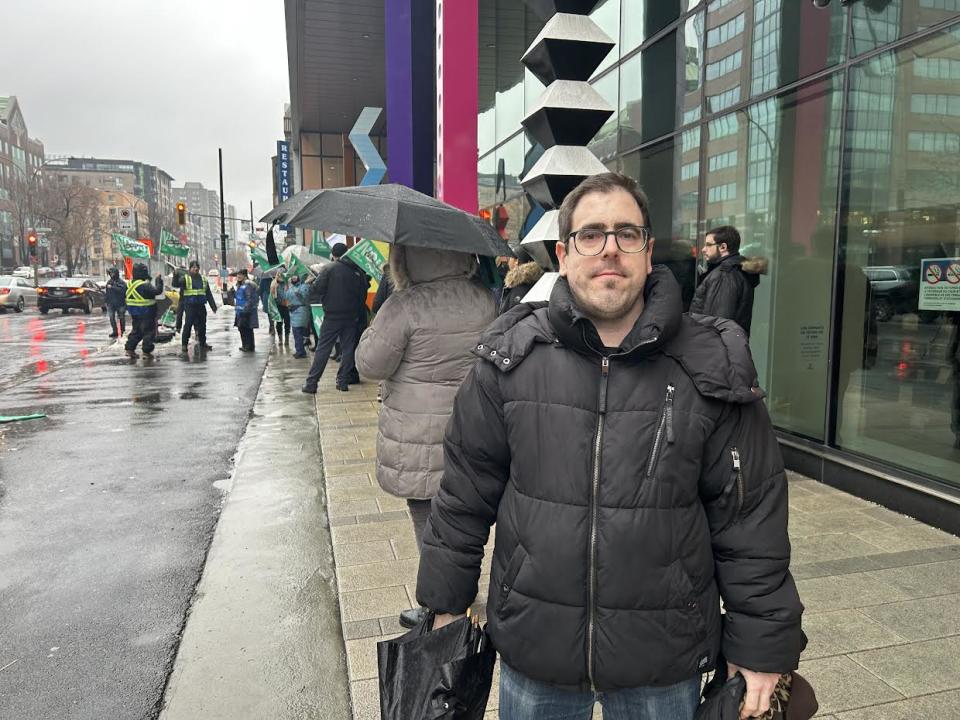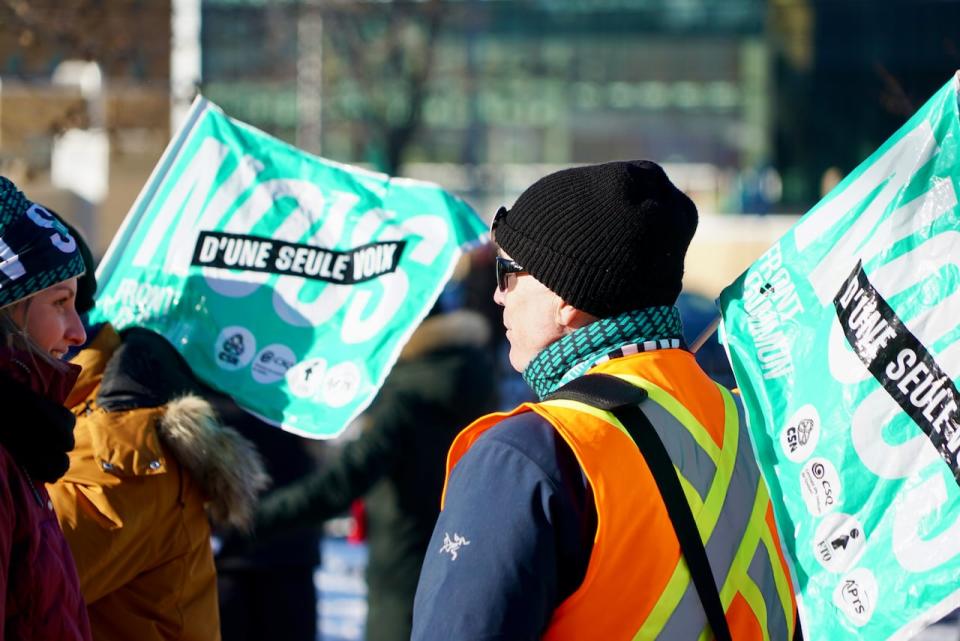Common front union leaders upset province not negotiating over the weekend

Public sector union leaders representing the common front, or Front commun in French, are decrying the absence of the provincial government at the negotiating table over the weekend.
Hundreds of thousands of public sector health and social service workers are currently on the third day of a week-long strike pushing the government for better pay and working conditions.
"The healthcare system is open 24 hours a day, seven days a week, 365 days a year and the government doesn't feel the urgency to negotiate over the weekends," said Sylvie Nelson, the president of the Syndicat québécois des employées et employés de service, during a press conference Sunday morning.
Maxime Ste-Marie, the president of the Conseil provincial des affaires sociales, said the unions will be available 24/7 over the next week to continue negotiations, and they are hoping to reach an agreement by Dec. 19.
If they aren't able to strike a deal, Ste-Marie says they'll have to consider other ways to make themselves heard. Among those options is a general unlimited strike after the holidays.
Workers in the health-care and social services sectors are asking for — among other things — more time off and higher compensation rates for overtime. For the last two years, health-care workers were paid double-time for overtime work as a temporary measure to mitigate staffing shortages during the pandemic.
According to Nelson, the measure, which ended on Nov. 4, helped with retention and make health care positions more attractive to prospective workers.
"The system is still in crisis," said Nelson.

'It’s very important for myself, for our children, that we are out in the street to ensure that public services are the best we can offer,' says Simon Dolbec, who has worked as a cook at the Centre hospitalier de l'Université de Montréal for the past 17 years. (Sara Eldabaa.CBC)
Réjean Leclerc, president of the Fédération de la santé et des services sociaux, which is affiliated with the Confédération des Syndicats Nationaux (CSN), one of the unions that makes up the common front, says Quebec Premier François Legault's repeated call for more "flexibility" really means ceding what he calls "more control" to the government.
He says health and social service sector workers have been steadily undermined for years, with pressure building over time.
"If we ask them for more flexibility, the elastic will snap," said Leclerc.
In downtown Montreal, Simon Dolbec, a cook at the Centre hospitalier de l'Université de Montréal (CHUM) for the past 17 years, stood alongside his colleagues who demonstrated under the rain, waving the green and white flags of the common front.
Dolbec says the workers won't hold back until they get what they consider a fair deal.

Common front union leaders say the Quebec government isn't demonstrating any urgency when it comes to advancing negotiations to end the public sector workers' strike. (François Gagnon/Radio-Canada)
"It's very important for myself, for our children, that we are out in the street to ensure that public services are the best we can offer," he said.
Earlier this week, the common front rejected the government's latest contract offer that included a 12.7 per cent pay raise over five years.
The office of Treasury Board Minister Sonia LeBel told CBC it is willing to meet with union negotiators at any time and that negotiations will continue at the bargaining table. It says its latest offer totals $9 billion.
"The measures we are proposing will make it possible to reduce mandatory overtime, improve work-life balance and enhance services to the public," it said in a statement.
However, most unions have asked for an increase closer to 20 per cent over three years. They have said the increases the government has offered effectively amount to a pay cut because of inflation and years of wage loses.
Quebec's largest nurses' union, the Fédération interprofessionnelle de la santé du Québec (FIQ), will begin a four-day strike on Monday. According to Radio-Canada, the FIQ presented the Quebec government with a counter offer on Friday.
In a statement, the FIQ told CBC it had been asking for a 24 per cent increase over three years, but is now asking 20 per cent, a 14 per cent increase over four years plus a six per cent boost for 2022.
Teachers with the Fédération autonome de l'enseignement have been on an unlimited strike since Nov. 23.

